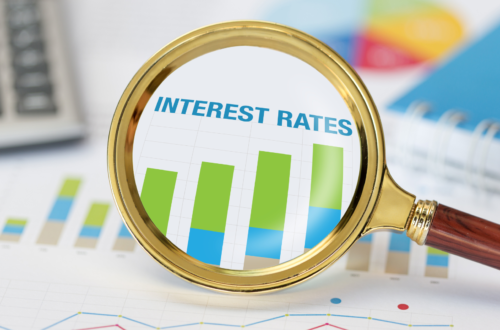
Debt Recovery vs. Debt Collection: What’s the Difference?
Ever find yourself tangled up in unpaid invoices and wondering what steps to take next? When overdue payments start piling up, your cash flow takes a hit, and it might feel like a constant uphill battle trying to get things back on track. If you’re in this boat, you’ve likely come across the terms “debt recovery” and “debt collection.” At first glance, they might seem interchangeable. However, these processes are quite different and can impact your business in unique ways. So, what exactly is the difference, and how do you choose the right approach to recover what’s owed?
Understanding Debt Recovery: The Long-Term Strategy
Debt recovery is often a more strategic, involved process focused on retrieving long-standing or “bad” debts that haven’t been repaid over an extended period. This typically happens when regular reminders and polite nudges just aren’t doing the trick anymore. Debt recovery usually comes into play when an account is considered uncollectable by typical in-house efforts and may have been written off in your books. Here’s what you should know:
Debt recovery agencies don’t just send reminders. They often conduct thorough investigations to assess a debtor’s financial situation, determining their ability to pay and potentially setting up payment plans. Debt recovery aims to rehabilitate accounts and, in some cases, may also involve legal proceedings if required. This process is particularly suited for debts that have gone unpaid for more than 90 days. It’s a solution for “stubborn” debts that have been lingering past due, often when other avenues have failed. Debt recovery can be a good option if you’re not just looking to collect but to actually restore lost revenue over the long term.
Debt Collection: The More Direct Approach
Debt collection, on the other hand, usually involves a quicker approach focused on debts that are more recently overdue. Often, when invoices go unpaid for a period of around 30 to 90 days, a national debt collection agency steps in to take action on your behalf. This can be helpful if you’re dealing with regular customers or clients who are temporarily behind on payments but have shown a history of eventually paying.
The role of a debt collection agency here is to contact the debtor, usually by phone or email, reminding them of the outstanding amount and encouraging them to make the payment promptly. Compared to debt recovery, debt collection is less intensive and generally does not involve legal action. It’s more about getting a nudge in the right direction to secure quicker payments for recent debts.
Debt collection agencies often work on a contingency basis, meaning they only take a percentage of what they collect rather than charging a fixed fee. This makes it more cost-effective for addressing short-term overdue accounts and can relieve your team of the stress and time required to chase payments.
Key Differences Between Debt Recovery and Debt Collection
Let’s look at some practical differences between debt recovery and debt collection. Here’s how these two approaches stack up against each other:
- Timing – Debt collection is ideal for more recent debts, typically between 30-90 days overdue. Debt recovery, however, is for older debts that have gone unpaid for longer, usually 90+ days.
- Intensity of Process – Debt collection involves simple reminders and follow-ups. Debt recovery, meanwhile, is a more intense process that can involve investigations and, if needed, legal steps.
- Cost Structure – Debt collection often operates on a “no-win, no-fee” model, whereas debt recovery agencies might charge more depending on the complexity of the case.
- Customer Relationship Impact – Debt collection is generally more about maintaining a positive rapport with the debtor, using gentle reminders to ensure a smoother payment process. Debt recovery, however, can be more assertive, as it usually involves cases where a business relationship may already be strained.
- Legal Implications – While debt recovery can involve legal action if necessary, debt collection rarely does. Recovery agencies may go to court to retrieve large, long-standing debts, whereas collection agencies usually avoid this route.
Which One Do You Need?
So, how do you know which one is right for your business? The answer depends largely on the age of the debt, the debtor’s payment history, and the impact on your cash flow. If you have invoices that have just recently gone unpaid and you’re confident your customer is reliable, a debt collection service might be the perfect fit. However, if you’re dealing with older, long-standing debts and the customer seems unresponsive or has a history of delayed payments, debt recovery might be the way to go.
Debt recovery is also something to consider when the outstanding amount is significant enough to justify the higher fees and more intensive process. In contrast, debt collection can be a simpler solution for smaller sums or customers who just need a little push to catch up.
Benefits of Outsourcing Debt Management
Whether you opt for debt collection or debt recovery, outsourcing the process can free up your internal resources and improve efficiency. Letting a third-party agency handle these tasks provides several advantages:
- Professionalism – Debt management agencies are trained to handle sensitive financial situations, ensuring a professional approach.
- Efficiency – These agencies have systems and expertise to locate debtors, negotiate payments, and recover funds faster.
- Improved Cash Flow – Quick action on overdue payments boosts your working capital and prevents unnecessary delays.
- Reduced Stress for Your Team – With experts taking over, your team can focus on core tasks, boosting morale and productivity.
- Higher Success Rates – Skilled agents and specific techniques increase your chances of retrieving money owed, especially for hard-to-collect accounts.
Your Next Steps
Knowing the difference between debt recovery and debt collection can help you make smarter decisions on how to handle overdue accounts. No one wants their cash flow tied up in unpaid invoices. Sometimes, simply choosing the right approach is all it takes to turn that around. Remember, if the debt is recent, debt collection is likely the better fit; for older, persistent debts, debt recovery is more suitable. Choosing the right approach can significantly impact your business’s financial health, enabling you to keep cash flow steady and focus on growth.




